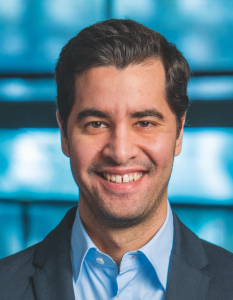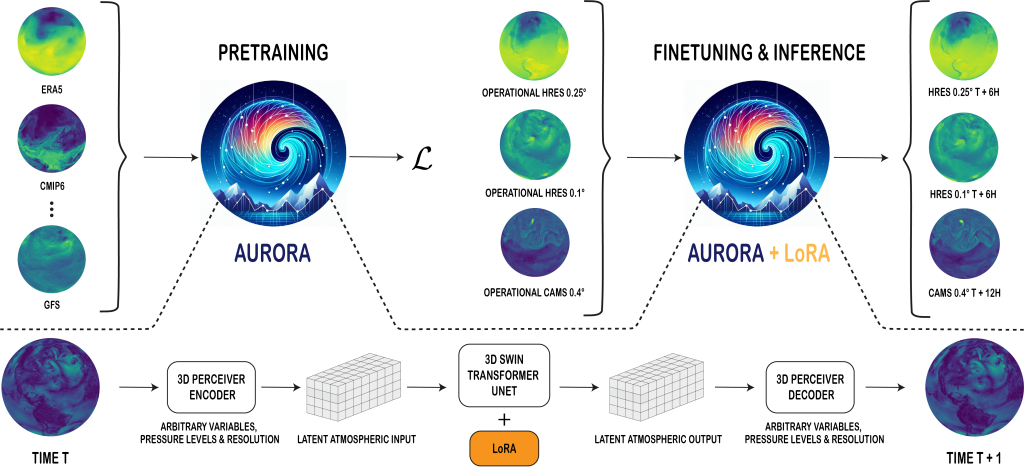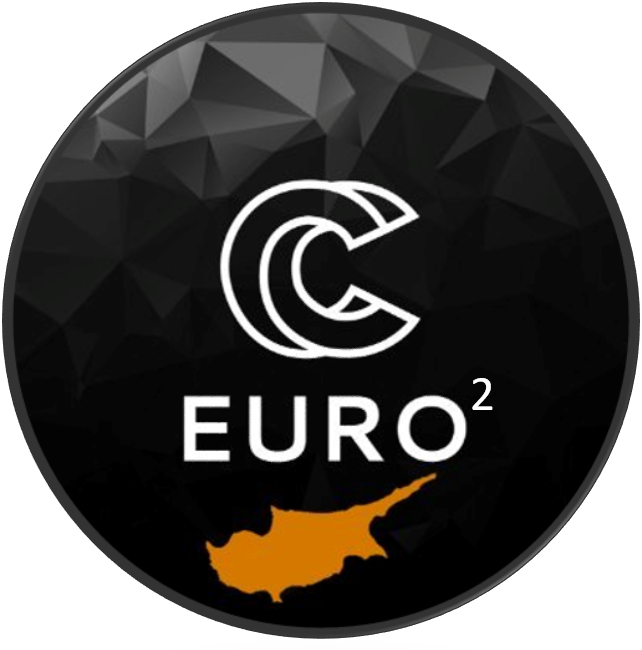Date: Tuesday, 2 July 2024, 13:00 - 14:00 EEST
Event Recording
Speakers:
Prof. Paris Perdikaris
Venue:
This training event is held as a hybrid event. You are welcome to join us at the Fresnel Building - John Ioannides Auditorium, The Cyprus Institute. Otherwise please, connect to our live stream of the discussion, available on Zoom (Password: VsSCz1).
Abstract:
Deep learning foundation models are revolutionizing many facets of science by leveraging vast amounts of data to learn general-purpose representations that can be adapted to tackle diverse downstream tasks. Foundation models hold the promise to also transform our ability to model our planet and its subsystems by exploiting the vast expanse of Earth system data. Here we introduce Aurora, a large-scale foundation model of the atmosphere trained on over a million hours of diverse weather and climate data. Aurora leverages the strengths of the foundation modelling approach to produce operational forecasts for a wide variety of atmospheric prediction problems, including those with limited training data, heterogeneous variables, and extreme events. In under a minute, Aurora produces 5-day global air pollution predictions and 10-day high-resolution weather forecasts that outperform state-of-the-art classical simulation tools and the best specialized deep learning models. Taken together, these results indicate that foundation models can transform environmental forecasting.
Language: English
Short bio:
Paris Perdikaris is an Associate Professor of Mechanical Engineering and Applied Mechanics at the University of Pennsylvania and a Principal Researcher Manager at Microsoft Research AI4Science. He received his Ph.D. in Applied Mathematics from Brown University (2015), and worked as a postdoctoral researcher at the Massachusetts Institute of Technology (2015-2017). His research interests span a range of topics at the interface of computational science and deep learning, including the development of foundation models for weather and climate modeling. physics-informed neural networks and neural operators, generative models, and uncertainty quantification for sequential decision making in scientific and engineering applications.
Event Recording
Speakers:
Prof. Paris Perdikaris
Venue:
This training event is held as a hybrid event. You are welcome to join us at the Fresnel Building - John Ioannides Auditorium, The Cyprus Institute. Otherwise please, connect to our live stream of the discussion, available on Zoom (Password: VsSCz1).
Abstract:
Deep learning foundation models are revolutionizing many facets of science by leveraging vast amounts of data to learn general-purpose representations that can be adapted to tackle diverse downstream tasks. Foundation models hold the promise to also transform our ability to model our planet and its subsystems by exploiting the vast expanse of Earth system data. Here we introduce Aurora, a large-scale foundation model of the atmosphere trained on over a million hours of diverse weather and climate data. Aurora leverages the strengths of the foundation modelling approach to produce operational forecasts for a wide variety of atmospheric prediction problems, including those with limited training data, heterogeneous variables, and extreme events. In under a minute, Aurora produces 5-day global air pollution predictions and 10-day high-resolution weather forecasts that outperform state-of-the-art classical simulation tools and the best specialized deep learning models. Taken together, these results indicate that foundation models can transform environmental forecasting.
Language: English
Short bio:
Paris Perdikaris is an Associate Professor of Mechanical Engineering and Applied Mechanics at the University of Pennsylvania and a Principal Researcher Manager at Microsoft Research AI4Science. He received his Ph.D. in Applied Mathematics from Brown University (2015), and worked as a postdoctoral researcher at the Massachusetts Institute of Technology (2015-2017). His research interests span a range of topics at the interface of computational science and deep learning, including the development of foundation models for weather and climate modeling. physics-informed neural networks and neural operators, generative models, and uncertainty quantification for sequential decision making in scientific and engineering applications.


